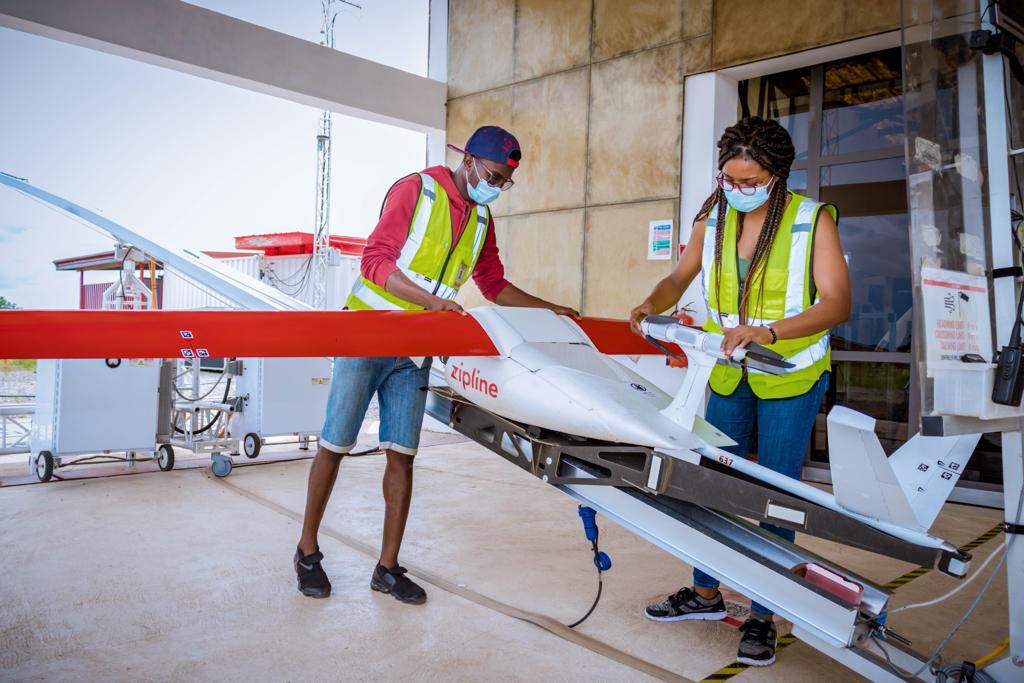Global drone logistics company, Zipline has hit one million deliveries in what has been taunted as a significant leap forward in the logistics delivery sector.
The milestone was marked by the delivery of two bags of IV fluid from a Zipline distribution center in Ghana to a local health facility on April 23.
“It was one of more than a thousand deliveries we made in the last 24 hours, but this otherwise ordinary flight marks a major moment for Zipline: our one-millionth commercial delivery,” said Ryan Oksenhorn, the company’s Co-Founder.
With operations in eight countries across four continents, and more than 60 million commercial autonomous miles flown to date, Zipline is transforming access to healthcare, consumer products, and food.
Ten years ago, in April 2014, we were just beginning to imagine how drone delivery could change the world. We saw traffic jams of gas-guzzling cars. We saw communities cut off from reliable access to supplies due to supply chain logjams, poor urban planning, difficult terrain or roads washed out from floods. We knew there had to be a better system to get people the things they needed. There’s no way the future would look like this.
Ryan Oksenhorn, the company’s Co-Founder
The company ventured into the Kenyan airspace in February 2023, with its pilot operations in Kisumu County.
To date, the company has made at least 6, 300 deliveries of drugs and non-medical supplies from its Chemelil distribution centre, to various healt facilities within Kisumu.
The company also launched delivery of blood and blood products, as well as vaccines from this centre.
Zipline originally started delivering blood and medical products in Rwanda in 2016 and has since expanded to food, retail, agriculture products, and animal health products. Zipline has two platforms — one for long-range delivery and the other for precise home delivery.
Innovative logistics approach
Renowned for its innovative approach to designing, building, and operating autonomous delivery drones, Zipline’s zero-emission technology has garnered acclaim, covering over 70 million commercial miles across four continents.
“To date, we’ve delivered to thousands of homes, hospitals, and businesses in the US, Rwanda, Ghana, Nigeria, Cote d’Ivoire, Kenya, and Japan,” said Ryan.
Backed by investments surpassing several millions of dollars from notable supporters like Sequoia Capital, a16z, and Google Ventures, Zipline has firmly established itself as a disruptive leader in the industry.

CEO Keller Rinaudo emphasizes the company’s commitment to key markets such as healthcare, quick commerce, and food delivery, envisioning a future where Zipline achieves 1 million deliveries per day.
“The three areas where the incentive really makes the most sense today are health care, quick commerce, and food,” he said.
In Kenya, Zipline’s collaborations with the Elton John AIDS Foundation have facilitated the delivery of HIV/AIDS prevention and treatment products, empowering individuals to manage their health effectively.
Similarly, in Nigeria, Zipline’s expansive coverage encompasses over 500 health facilities in Kaduna, more than 350 in Cross River State, and 200 in Bayelsa.
In Rwanda, Zipline serves as a lifeline, delivering 75 per cent of the country’s blood supply outside of Kigali, drastically reducing maternal mortality rates due to postpartum hemorrhage by 88 per cent.
Additionally, the company’s deliveries of agricultural products have elevated farmers’ fertility rates by 10 per cent compared to the national average.
Since its inception, Zipline has completed over 540,000 drone delivery flights across Ghana, encompassing the delivery of crucial supplies, including 3,566,500 units of vaccines, 2,825,210 units of medical products, 14,807 units of blood products, and 18,289 units of animal health products.
These deliveries have directly impacted the lives of over 17 million Ghanaians across 13 regions, saving 6,014 lives through emergency deliveries, including blood products and snake antivenom since 2019.
Here, the company has facilitated the delivery of 12.2 million vaccine doses, including 2.8 million Covid-19 vaccines, leading to a 21 per cent increase in vaccination coverage and a 44 per cent reduction in missed opportunities to vaccinate in Ghana.
